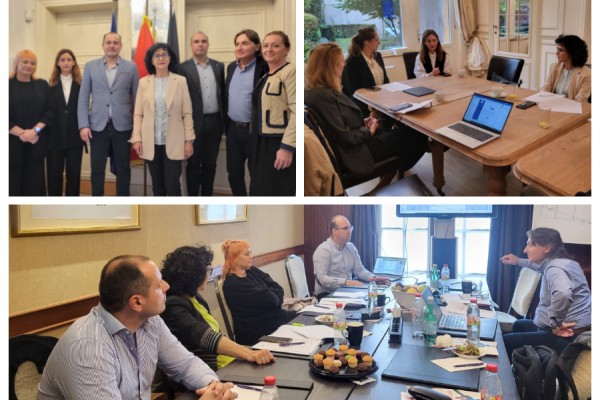
Dynamic 42nd Budget Committee Meeting included visit to the Mission of Montenegro to the EU and Capacity Building Training
ReSPA held its 42nd Budget Committee meeting on September 20-21, 2023, in Brussels, Belgium, with a dynamic agenda that included a visit to the Montenegro Mission to the EU and capacity-building training.
During this meeting, ReSPA's team and Budget Committee members engaged in discussions covering various topics related to financial and operational management. They also took the opportunity to visit the Mission of Montenegro to the European Union and participate in a capacity-building training session.
One of the key highlights of the meeting was the review of ReSPA's Interim Financial Statements, Interim Core Budget Implementation for the period of January-June 2023, the Core Budget for 2024-2025, and the proposed National Envelope for 2024. Based on their assessment, the Budget Committee members provided recommendations for approval to the Governing Board.
The Budget Committee meeting was kindly hosted on the premises of the Mission of Montenegro to the European Union in Brussels. Anđelka Rogač, Deputy Chief of Mission, commended ReSPA for its valuable contributions in supporting the Western Balkans, including Montenegro, in their reform efforts and EU accession negotiations. ReSPA Director Maja Handjiska-Trendafilova expressed gratitude for the warm hospitality and praised Montenegro's continued support as the host country for ReSPA. The vital work of the Budget Committee within ReSPA’s governance was likewise stressed.
As a supplementary event during the meeting, participants had the opportunity to attend a capacity-building training session on the management and coordination of projects funded by the European Commission, utilizing the PM² Methodology. This training aimed to equip Budget Committee Members and the ReSPA team with the necessary knowledge and skills for effective project management. The training encompassed various aspects of project management methodologies and frameworks, including the PM² Governance Model and the PM² lifecycle, covering project initiation, planning, execution, monitoring, control, and achieving desired project outcomes.



